#CaliforniaAirResourcesBoard
Gas War: California Brings Stellantis to Heel
Stellantis has agreed to adhere to California emission policies, including requirements to make two-thirds of new cars to zero-emission or electric by 2030. This means the automaker — which oversees Dodge, Chrysler, Jeep, Ram, Fiat, Maserati, Alfa Romeo, and several brands that are not sold in the United States — will be required to cut emissions through the 2026 model year and adhere to California’s requirement to have a majority electrified fleet within the next several years. There are also provisions for the company to spend millions of dollars on charging stations and community outreach programs designed to encourage EV sales.
Gas War: Republican States Sue EPA Over Californian Standards
Last week, a group of Republican attorneys general decided to sue the Environmental Protection Agency (EPA) over its decision to reinstate the waiver allowing California to set its own limitations on exhaust gasses and zero-emission vehicle mandates that would exceed federal standards.
The agency approved the waiver after it had been eliminated as part of the Trump administration’s fuel rollback on the grounds that it would create a schism within the industry by forcing automakers to produce vehicles that catered to the Californian market at the expense of products that might be appreciated in other parts of the country. However, Joe Biden’s EPA sees things differently and has aligned itself with the California Air Resources Board (CARB) in giving the state more leeway to govern itself in regard to emissions policing.
California Proposal Calls for 68 Percent EV Sales By 2030
Now that the U.S. Environmental Protection Agency (EPA) looks poised to reinstate California’s waiver under the Clean Air Act — allowing the state to establish stricter tailpipe emissions than the federal limits — the coastal region has resumed its quest to abolish gasoline-powered vehicles in earnest. While the California Air Resources Board (CARB) has yet to finalize all the details, the latest proposal calls for strengthened emissions standards for new light-duty vehicles in anticipation of the necessary approvals.
The scheme would require pure electrics and plug-in hybrids (PHEVs) to make up 35 percent of new-vehicle sales for the 2026 model year. By 2030, that number will become 68 percent before hitting 100 percent for MY 2035. CARB said zero-emission vehicles comprised 12.4 percent of the state’s new market in 2021, hinting that the number could have been higher without the Safer Affordable Fuel-Efficient (SAFE) Vehicles Rule Part One having stifled its progress.
Gas War: EPA Reinstates California's Ability to Set Emission Limits, EV Mandates
The U.S. Environmental Protection Agency has opted to reinstate California’s ability to set tailpipe rules and zero-emission vehicle mandates that are more rigid than federal standards. After quarreling for years over the Trump administration’s decision to roll back Obama-era fueling standards deemed untenable, the Golden State now has the ability to once again make harder for its citizens by forcing them to purchase the kind of vehicles it feels they should be driving — rather than leaving it up to the individual that’s actually buying the car.
Though it might not matter at this point. While California effectively served as a defensive shield against proposed fueling rollbacks while Trump was in office, the Biden administration strategy is broadly in line with its agenda of making gasoline unappetizing to consumers to ensure a speedy transition to electric vehicles. California doesn’t even want people to have access to gas-powered lawn care equipment. The state has effectively served as a test case for Build Back Better since before the phrase passed through the lips of a single politician.
Gas War: GM Now Sucking Up to California to Maximize Fleet Sales
General Motors has issued a letter to California Governor Gavin Newsom promising that the automaker is now fully committed to complying with the state’s aggressive emission regulations. This follows an earlier announcement from GM advancing plans to eliminate tailpipe emission from all light-duty vehicles by 2035 via electrification. The company had also increased global spending to develop EVs to $35 billion (USD) through 2025, which is roughly a third more than it had previously been targeting.
Of course, don’t think this has anything to do with altruism or formal commitments to some grand cause. California was simply planning to bar any automakers that hadn’t previously vowed to adhere to its strict regulatory policies from selling to state government fleets. While GM has been in the process of changing its allegiance, the business originally sided with automakers approving of the Trump administration’s regulatory revisions that were at odds with the region.
Gas War: California May Ban Gas-Powered Lawn Equipment
The California Air Resources Board (CARB) has decided that residential lawn equipment is a major problem. Claims have been made that the small engines found inside of the average leaf blower emit the same amount of smog-forming pollution in a single hour as a 2016 Toyota Camry could produce over a 1,100-mile drive.
Assertions like these have been used to forward Assembly Bill No. 1346, which requires the board to define and then pull the trigger on new regulations designed “to prohibit engine exhaust and evaporative emissions from new small off-road engines” by 2022. CARB then has to decide whether or not it can outright ban them, so they may be replaced by zero-emission equivalents after 2024. Considering how decent most electrified tools have grown to be, this doesn’t sound infeasible. But it’s another example of California’s obsessive hatred of consumers utilizing liquid fuel and bound to have major ramifications.
Judge Approves Daimler AG's $1.5 Billion Diesel Emissions Settlement
On Tuesday, a federal judge approved a $1.5 billion settlement to pump the brakes on an investigation conducted by the U.S. government pursuing claims that Daimler used illicit software that allowed excess diesel emissions on 250,000 units. This runs in tandem with another $700 million settlement the automaker is making with vehicle owners, which is likely to see final approval in a few months, and an extensive recall campaign.
The federal case involves the U.S. Justice Department, the California Air Resources Board, and follows a trend of fines for automakers accused of misleading regulators so that diesel vehicles could continue being sold. This kicked off with Volkswagen’s Dieselgate in 2015, with numerous government probes taking place in Europe and North America over the next five years. Many automakers have since been discouraged from relying on diesel powertrains due to rising regulatory actions. European countries that once championed the fuel as ecologically preferable to gasoline, after the advent of biodiesels, are now obsessed with tamping down NOx emissions and getting more electric vehicles onto the road.
California Wins the Gas War, Fickle Automotive Coalition Realigns Position
The Coalition for Sustainable Automotive Regulation (CSAR) is officially withdrawing from a lawsuit between California and federal authorities over the coastal state’s ability to establish its own emissions standards. California leadership had vowed to ignore the Trump administration’s proposed rollback and began making binding side deals with automakers (specifically BMW, Ford, Volkswagen, Volvo, and Honda) committed to adhering to the aggressive limits established under President Obama. Unfortunately, this ran the risk of undermining the revised national standards penned shortly after the United States became energy independent. It also set up the CSAR to embrace any entity that had views conflicting with California Air Resources Board.
Federal concerns were that the Golden State setting its own targets would butt heads with the relaxed national benchmarks and ultimately divide the U.S. market and may even influence the types of vehicles that were manufactured for all of North America. But the issue became moot once President Biden broke the record for executive orders by signing 22 in his first week. Predictably, the brunt of these were designed to instantly undo any actions taken throughout the duration of the Trump administration and included one directing the Department of Transportation and EPA to reconsider the 2019 decision to remove California’s authority to limit tailpipe emissions by April and revise the fuel-efficiency standards for automobiles by summer.
Gas War: California Regulators Say Biden Should Embrace State's Emission Plan
While multiple states launch mandatory election recounts and President Trump throws around lawsuits like confetti Joe Biden and the mainstream media are preparing for his ascension from regular old man to Leader of the Free World — though that title doesn’t seem to get much play these days. Biden has already started holding meetings with foreign leaders and experts on how to go about heading the United States. Apparently, there’s even been some progress on how to govern the nation.
On Thursday, California Air Resources Board (CARB) Chairwoman Mary Nichols said the state’s arrangement with major automakers over fuel efficiency requirements would be ideal for the presumed Biden administration — which has promised to implement some of the most ambitious emissions standards the world has ever seen. Nichols also expressed excitement at the possibility of heading the U.S. Environmental Protection Agency (EPA) under a Biden presidency and is reportedly under serious consideration for the position.
California Urges Manufacturers to Tattle on Themselves
On Wednesday, the California Air Resources Board (CARB) urged manufacturers to disclose any unapproved hardware or software that might place a vehicle’s emissions outside of the acceptable parameters of legality. CARB said those who comply would be subjected to reduced penalties and reminded everyone that it’s going to be opening a state-of-the-art testing facility that will be better at catching cheaters in 2021. It’s so advanced, the board suggested it might even be able to catch totally new violations.
You’ve likely seen this tactic employed by an exasperated parent or substitute teacher. An illicit substance is found tucked away somewhere and they parade it around demanding whoever owns it to fess up immediately or face harsher consequences later. This obvious trap is best avoided by committing a lesser crime right then and there or being so obstinate that you’re issued a minor punishment just for being annoying — thus freeing you of suspicion for the pornography Mr. Lawson found taped beneath the bleachers.
Gas War: California Finalizes Side Deal With Automakers
The California Air Resources Board (CARB) made a slew of announcements on Monday regarding what types of vehicles will be allowed within the confines of its borders. These included everything from proclaiming aftermarket parts would be subject to a faster approval (or denial) process in the future, to announcing a joint initiative with 15 other states (most of whom joined CA in opposing the fuel efficiency rollback), to accelerating the implementation of electrified buses and trucks.
It also confirmed that California has finalized binding agreements with several automakers to cut vehicle emissions. BMW, Ford Motor Co., Honda Motor Co., and Volkswagen Group all entered into a voluntary agreement with the Golden State to adhere to Obama-era emission mandates last summer. While this prompted the U.S. Justice Department to launch an antitrust investigation into the deal, no action was taken. CARB said those companies — and some of their friends — made a binding commitment to California this month and will commit to its new emission targets, rather than the revised quotas set by the federal government.
American States Join Forces to Promote Electric Trucking
A bundle of U.S. states and the District of Columbia unveiled a joint memorandum of understanding on Tuesday targeting the proliferation of medium and heavy-duty electric vehicles.
News of the agreement comes less than a month after the California Air Resources Board (CARB) showed off a policy that would legally obligate manufacturers to sell an increasing number of zero-emission vehicles (ZEVs) from 2024 onward. That plan aims to basically eliminate diesel-powered semis by 2045, though the new memorandum has its sights set on 2050.
Hauling In California? That Rig Had Better Be Green
The California Air Resource Board (CARB) just passed a mandate that will require manufacturers of big rigs, heavy duty pickups, and some construction equipment to adhere to new zero-emission quotas and a carbon-credit system.
As all-electric 18-wheelers are in short supply, California wants to wait a few years to put the new rules into play. Still, it’s eager to get the ball rolling so it can start replacing diesel-driven transport with something from the battery-electric section. It also gives the state another opportunity to pat itself on the back despite not having any clue whether or not the strategy is economically sustainable. Even with battery technology moving at a fair clip, there’s a lot of engineering left to be done before these types of vehicles can become commonplace.
Justice Department Subpoenas Automakers Over California Emissions Pact
The Justice Department has issued civil subpoenas to the four major automakers’ that voluntary agreed to adopt a Californian compromise on vehicle emission requirements. The antitrust investigation seeks to determine whether or not BMW, Ford, Honda, and Volkswagen were in violation of federal competition laws by agreeing with each other to adhere to stricter emissions standards penned by California.
With the Trump administration working for years to roll back emissions standards, California has been doing everything in its power to maintain its ability to self-regulate and gain support for higher emission standards. Under the agreement with the Golden State, the companies promised to meet annual emission improvement targets of 3.7 percent and defer to the state’s authority to set its own emissions standards.
Battle Lines Are Being Drawn in America's Gas War
Ford Motor Co, Honda Motor Co, BMW Group and Volkswagen AG announced a voluntary deal with California in July — drawing a line in the sand for who they’ll be supporting in the fueling fracas taking place between the Golden State and White House. Meanwhile, the Trump administration’s rollback proposal — which intends on freezing automotive emission standards at 2020 levels through 2026 — saw no such support. But the cavalry seems to have finally arrived after sitting on the sidelines during the battle’s opening maneuvers.
General Motors, Fiat Chrysler Automobiles, Toyota, Mazda, Nissan, Kia, and Subaru all sided against California in a filing with a U.S. appeals court from Monday night. While they’re not setting any economy targets, they are collectively firm on the issue of the state’s ability to self regulate. A large portion of the industry wants a single national standard, not individual states setting their own benchmarks while they attempt to catch up with product.



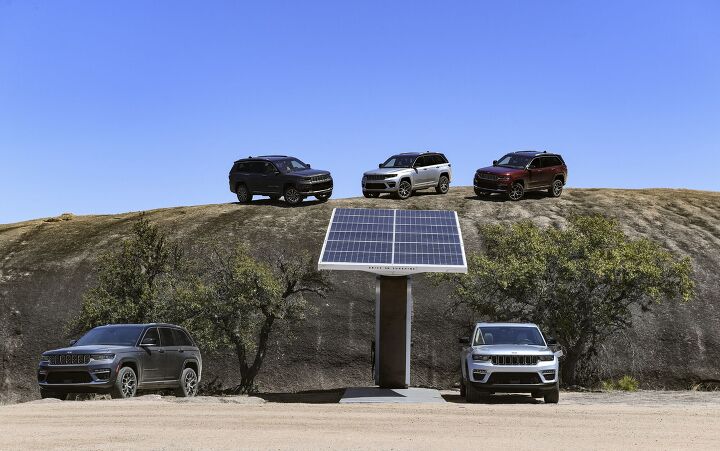




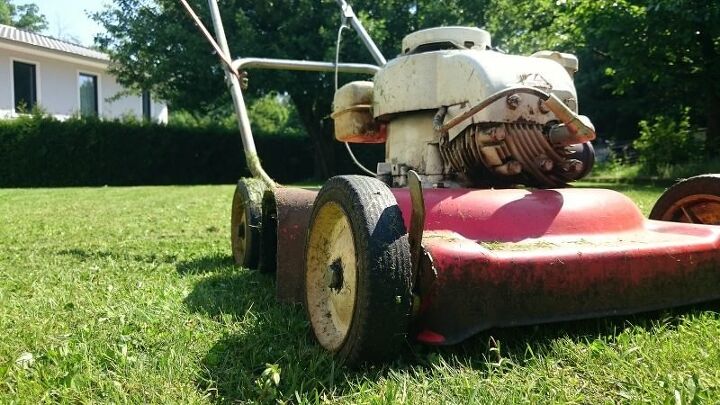
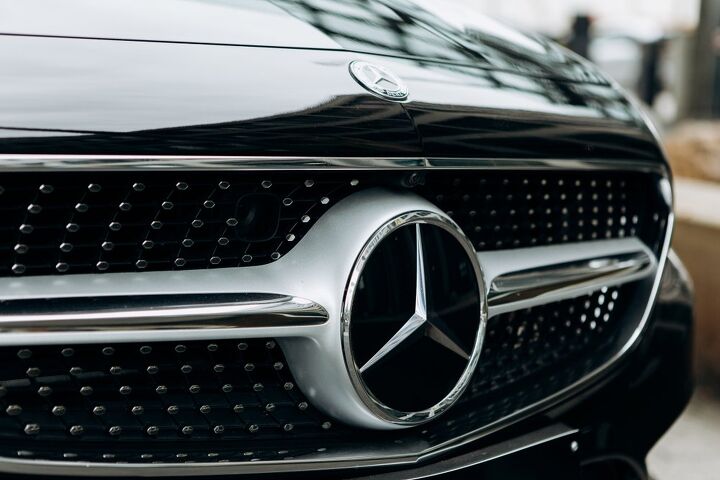

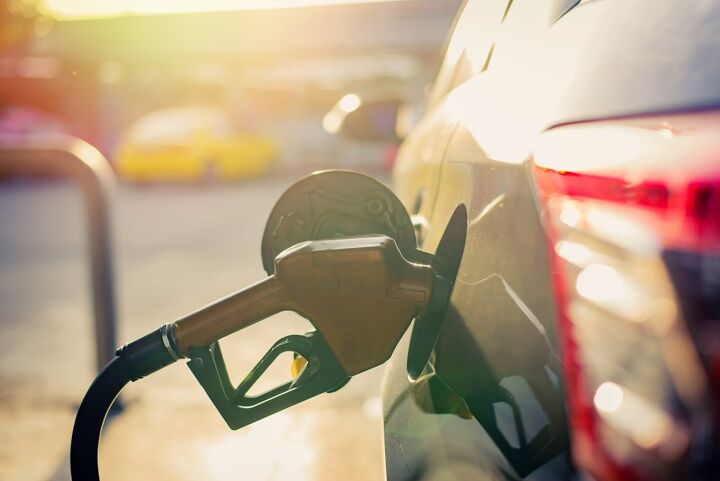


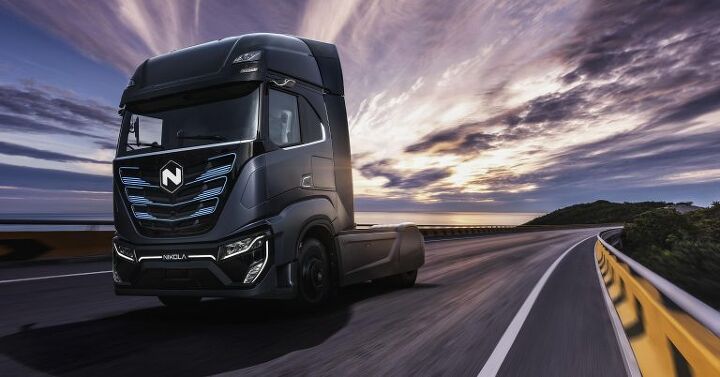


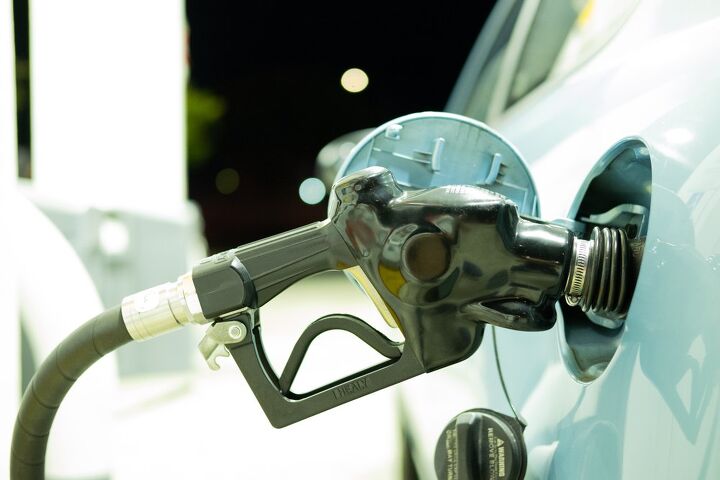












Recent Comments